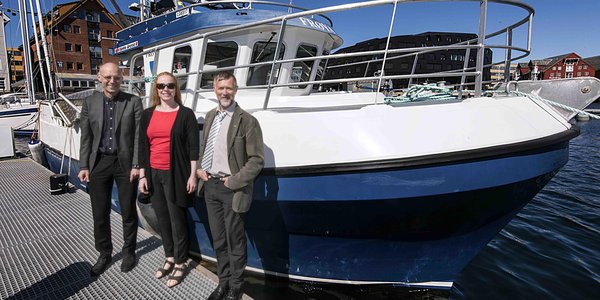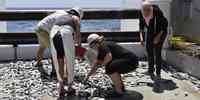News
Result: (287) Showing 271 - 287

Recommends reducing cod quota by 20%
13.06.2017

Can pesticides end up in salmon?
30.05.2017

Norwegian bivalve molluscs in good condition
24.05.2017

Dr. Fridtjof Nansen has started working
18.05.2017

Prime Minister to name new research vessel
22.03.2017

No Anisakis in farmed rainbow trout
26.01.2017

King and president joined mackerel-dugnad
01.01.2017









